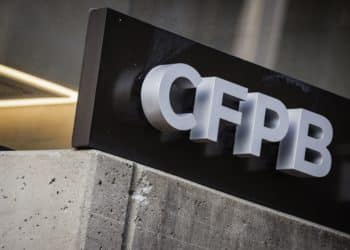Check Your Messages: How The TCPA Is Changing for Lenders
Calling on the phone is one of the simplest ways to reach people, but for lenders and other financial companies, it can be more confusing and complicated than one might expect.
Collection departments that need to reach customers to discuss payment status or account issues are governed by the Telephone Consumer Protection Act. Following a 2015 ruling expanding the guidelines, lenders have had problems interpreting the act, which became a magnet for lawsuits.
The TCPA is “the fastest growing source of lawsuits, and it has been for five or six years,” John Redding, partner at Buckley Sandler LLP, told Auto Finance News, but now the TCPA is in line for a restructuring that could provide lenders relief.

The TCPA guideline at issue prevents calls to cell phones made using an automated telephone dialing system (ATDS) or “autodialer” without the express consent of the “called party,” and forces callers to submit to certain regulations.
The TCPA has been revisited and revised a number of times in the past few decades. Now the act is at a crossroads as its overseer, the Federal Communications Commission, will be redefining several key aspects that have been a source of confusion and risk for lenders.
Clearing Up Confusion
On March 16, the U.S. Court of Appeals for the District of Columbia ruled to broaden the definition of an autodialer to include any smartphone or tablet. In essence, the circuit court decision required the FCC to redefine
TCPA guidelines. In the meantime, lenders are faced with the original guidance and a smattering of state laws.
Since then, the FCC has issued a request for public comment on reforming the TCPA, honing in on topics such as what constitutes an autodialer, how to treat calls to reassigned numbers, and how a called party may revoke prior express consent. Comments were due June 13, and reply comments were due June 28.
Of the 294,758 comments submitted by consumers, financial organizations, and consumer representatives by press time, most sought clarity on autodialers and reassigned numbers.
As defined in the 2015 TCPA order, an autodialer is any “equipment which has the capacity (A) to store or produce telephone numbers to be called, using a random or sequential number generator; and (B) to dial such numbers.”
The problem that businesses had with this definition is that “capacity” is too broad a term. Technically, a person’s smartphone with the proper apps installed is capable of being considered an autodialer, meaning that the individual would also be subject to TCPA compliance.
“The statute has many ambiguous provisions that can be applied to this modern [smartphone] technology,” said Lauren Campisi, a member at law firm McGlinchey Stafford PLLC. “The statutory penalties are severe. If the caller needs consent and does not have consent, there really aren’t any other mitigating defenses. It can be very punitive for someone who places multiple phone calls per day, and everyone in the financial services space is in that category.”
Not knowing exactly what is defined as an autodialer poses a challenge when attempting to comply with the TCPA.

“Businesses simply want and need clarity,” the National Automobile Dealers Association wrote in a comment to the FCC. “They must be able to definitively determine what an [ATDS] is, and what it is not. And they must be able to communicate with their customers in ordinary ways without a risk of a technical or arguable violation of the TCPA, based on an esoteric, changing, and subjective standard.”
Another facet of the ruling that businesses hope the FCC will reevaluate is what can be considered a “called party,” a topic connected to the issue of reassigned numbers.
Sometimes, consumers change phone numbers without alerting their lenders. When the lender calls a number on record, it is often calling an entirely new party. Unlike the intended recipient, this person did not give consent to be reached with an autodialer, which means the caller is subject to fines after the second offense.
“The FCC gave it a one-call safe harbor,” Ballard Spahr LLP Partner Daniel McKenna told AFN. “So if I attempted to call Dan McKenna and it’s not Dan McKenna’s phone, I’m not liable. But if I make the second call, suddenly I am liable.”
If the unintended recipient does not answer the phone or have an outgoing message in voicemail, the caller has little indication that it is contacting the wrong person. As such, the likelihood of a second attempted call — and subsequent fines related to TCPA violation — is high. Regardless if the call is answered, companies can be fined $500 per call or $1,500 for every willful violation.
In a public comment to the FCC, the American Financial Services Association suggested that “called party” needs to be rephrased as “intended recipient,” easing the risk burden for compliant callers. AFSA also proposed mechanisms that enable consumers to more easily notify lenders of number changes, as well as a database — maintained by the FCC or a third party — that would grant lenders access to reassigned numbers.
“The ruling on called party is going to have a huge impact on the TCPA moving forward,” McKenna said. “Because if it ultimately becomes the intended recipient, or there’s some safe harbor for people who scrub third-party contact databases, then it should really help eliminate all the litigation that’s out there.”
What’s Next?
For now, lenders must comply with current standards while the FCC works to redefine the TCPA. For instance, they have to follow all state laws, which can be difficult because states have differing interpretations of similar cases.
“Many states already have various provisions that mostly focus on telemarketing activities, but not exclusively,” McGlinchey’s Campisi said. “So, just like the TCPA, it’s not limited to telemarketing activities. States have taken similar approaches, but they can vary from the federal model, so as we know with compliance issues across the board, those state variations can be problematic if companies aren’t sensitive to them. Whether that’s a slight variation in scope or substance, it is important to remember that the federal TCPA is not the only source of law governing this space.”
While there is no definitive prediction of how the FCC will reinterpret the TCPA, it’s worth noting that current Chairman Ajit Pai wrote a dissenting statement about the 2015 TCPA order, believing the broad definition of an autodialer did more harm to consumers than intentional bad actors.
Following the March ruling, Pai issued a statement celebrating the D.C. court’s decision and reaffirming the FCC’s position.
“We will continue to pursue consumer-friendly policies on this issue, from reducing robocalls to reassigned numbers to call authentication to blocking illegal robocalls,” Pai wrote. “And we’ll maintain our strong approach to enforcement against spoofers and scammers, including the over $200 million in fines that we proposed last year.”
As for the updated TCPA, the FCC has yet to set forth a timeframe for its revision.






